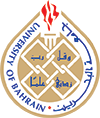KNOW-HOW OF ADDITIVE MANUFACTURING
COURSE OVERVIEW
Manufacturing sector is the backbone of any established or establishing economy. Traditional subtractive manufacturing suffers from substantial waste of material due to cutting thereby raising the product cost. However, this drawback can be overcome by employing new layer by layer manufacturing technology regarded as Additive Manufacturing (AM). This innovative group of processes allows fabrication of complicated/sculptured parts which once had been hard to produce.
The goal of this course is to introduce the innovative AM technology to the regional professionals and to equip them with necessary fundamental concepts empowering them to find competitive solutions to manufacturing of complicated components. The course encompasses breadth of a range of AM processes, introduces AM based design guidelines; discusses applications/limitations, and process selection. The course includes detailed guidelines on AM of polymers and ceramics, covers processing conditions, defects and proposes their remedies. Also, reports achievable mechanical performance of AM products and guide methodology to enhance their performance thereby equipping product designers with essential data. The course will also include case studies whereby real-world products will be produced to enhance hands-on-experience of the professionals.
KEY TOPICS COVERED
- Fundamentals
- What is Additive Manufacturing
- Additive Manufacturing Processes
- Production Process Chain from CAD to Part
- Applications, Opportunities & limitations of Additive Manufacturing
- Benefits of AM in Product Life Cycle
- Cost Models
- Design Guidelines
- Process Selection
- Additive Manufacturing Standards
- Additive Manufacturing of Polymers
- VAT Polymerization
- Material Extrusion
- Powder Bed Fusion
- Additive Manufacturing of Ceramics
- Extrusion of Ceramics
- Direct Energy Deposition of Ceramics
- Powder Bed Fusion of Ceramics
TARGET AUDIENCE
- Production managers and engineers
- Professionals in oil and gas, material production, air conditioning, home appliances, electronics, healthcare and construction sectors.
- Project managers and team leaders in local organizations.
- Public sector employees in healthcare, utilities, and education.
- Entrepreneurs and SME owners.
- Mid-level professionals seeking career growth.
- Entry-level professionals and recent graduates.
Instructor
Domain
Date
To be announced
No of Students
30
Hours
80 hours
Duration
8 weeks
Credit Points
2
Fees
500 BHD
Level
Language
English
Venue
To be announced
Classroom
Time
– Sat 9:30 AM – 12:30 PM (In-Person)
– Mon & Wed, 5:00 PM – 7:00 PM (Online)
Manufacturing or Materials or Relevant Technical knowledge/Practice
This course employs a comprehensive delivery structure combining in-person sessions, blended learning, collaborative case studies, and guided project work, designed to provide a balanced mix of theoretical understanding, practical application, and flexibility to meet the needs of diverse learners.
- In-person Delivery (24 hours)
- Frequency: Once a week for 8 weeks.
- Class Duration: 3 hours per session.
- Description: These sessions focus on hands-on learning and direct interaction with instructors, providing foundational knowledge and engaging discussions to clarify core concepts.
- Blended Content Delivery (14 hours)
- Frequency: Twice a week for 7 weeks.
- Class Duration: 2 hours per session.
- Description: Combines live online instruction and self-paced materials, allowing flexibility for participants while maintaining real-time engagement with instructors.
- Case Study (17 hours)
- Frequency: Once during the course, after completing module 1.
- Scheduling: Collaborative and flexible timing.
- Description: Participants will work in teams to analyze discrete products produced by Additive Manufacturing, in terms of cost, environmental effects, productivity and service performance.
- Guided Project Work (25 hours)
- Frequency: Once during the program, after completing 4 weeks.
- Scheduling: Hybrid approach (independent work with periodic mentorship).
- Description: Participants will work individually to produce a real-life product, undertaking multiple activities like selection of product and material, modelling and designing, slicing, printing and assessing mechanical performance of printed items.
Total Program Details
- Duration: 80 hours over the course span.
- Modes: A mix of in-person, and blended learning approaches to ensure flexibility, engagement, and practical application.
- Exam (25%): MCQ type exam will assess the depth to which the participant embraced knowledge and degree to which he/she can apply the learned knowledge in industry
- Case Studies (25%): Theme: Identify the root causes of defects and recommend solutions to reduce them.
- Guided Project (50%): The objective is to assess the participants’ ability to select material and process, design and print the industrial products and examine their mechanical performance.
For further Information, please contact:
Mr. Mohammed Al-Hooti
Tel: +973-33777339
Email: malhooti@uob.edu.bh
